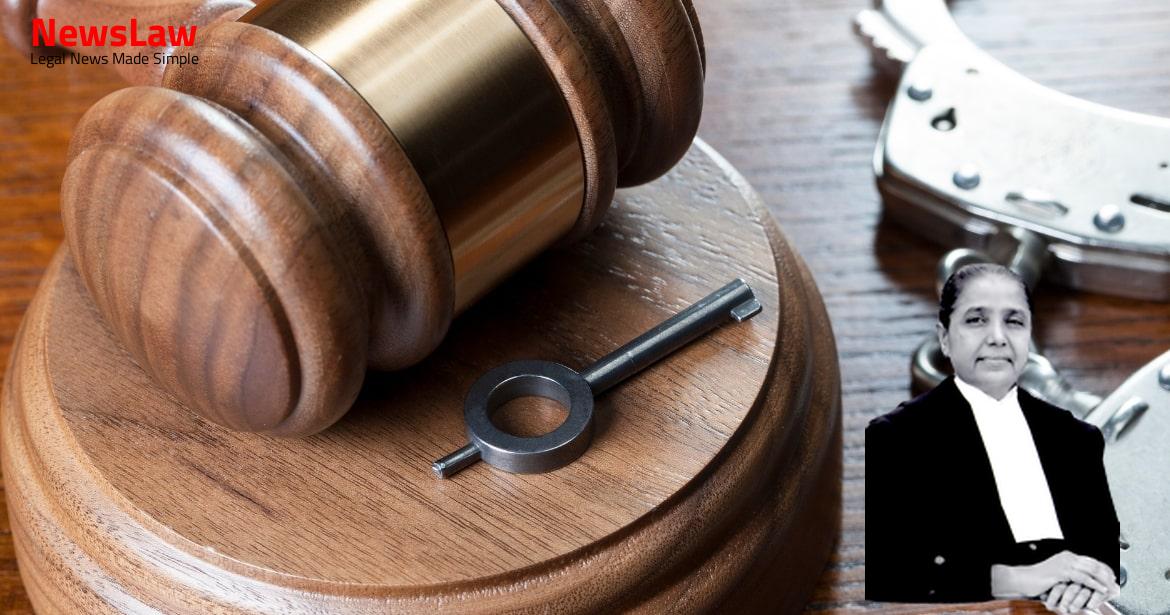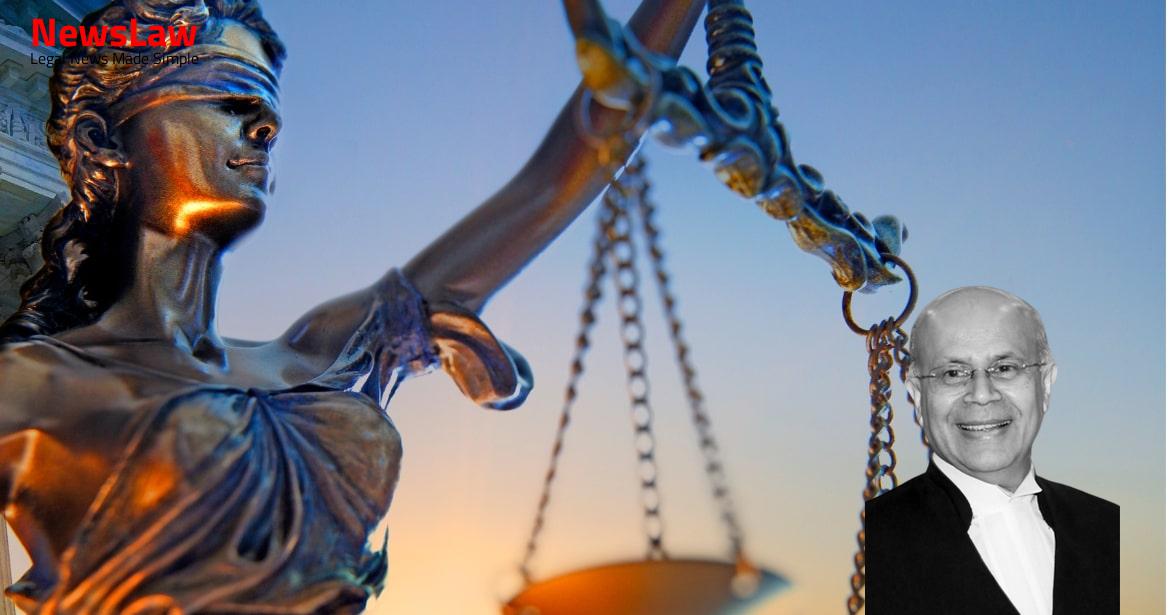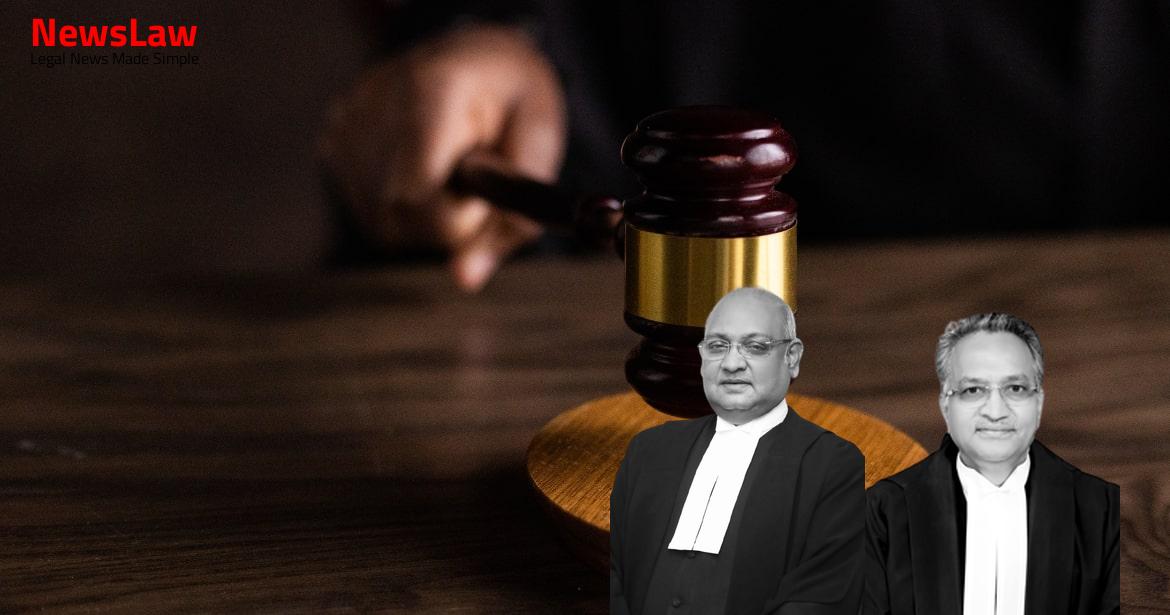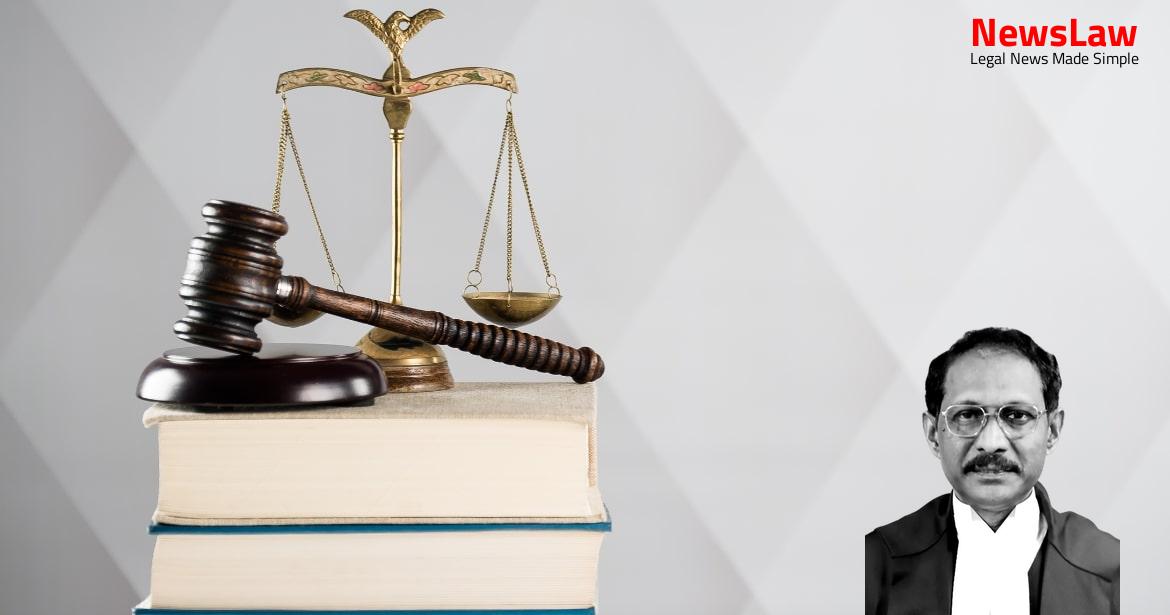Explore the detailed legal analysis conducted by the court regarding the validity of a decree and the registration requirements in a recent case. The court delved into the nuances of the law, analyzing the existence of fraud, coercion, and the necessity of registration. This summary provides insights into the complex legal deliberations that shaped the final outcome of the case.
Facts
- Defendants, appellants, executed a registered Will dated 02.09.1986 in their favor.
- Plaintiffs, daughters of Bhajan Singh, did not have a close relationship with their father after his divorce.
- Courts ruled in favor of the defendants regarding the validity of the Will dated 02.09.1986.
- Defendants filed a suit for declaration of ownership of the suit land, which was decreed on 09.01.1995.
- Bhajan Singh admitted the claims made by both plaintiffs and defendants in separate statements.
- The decree dated 09.01.1995 was not based on fraud or coercion.
- Plaintiffs later challenged the decree through a Civil Suit No.167 of 19.05.1998 after the death of Bhajan Singh.
- High Court dismissed the Regular Second Appeal No 3472 of 2004 filed by the defendants.
- Defendants claimed that Bhajan Singh executed the Will on 02.09.1986 out of his free will.
- The first appeal by the plaintiffs was decreed by learned Additional District Judge on 13.08.2004.
- Will dated 02.09.1986 was found to be not proven by defendant 12 due to failure to produce a living attesting witness
- Trial court deemed the suit to be within limitation
- First Appellate Court overturned trial court’s judgment, stating that the decree dated 09.01.1995 required registration as it created rights for the defendants
- Both First Appellate Court and High Court declared the decree dated 09.01.1995 as null and void due to lack of registration
- No fraud, misrepresentation, or coercion found in obtaining the decree dated 09.01.1995
- Trial court dismissed the suit based on the decree dated 09.01.1995, which was later decreed by the First Appellate Court
- Decree dated 09.01.1995 was deemed invalid and non-existent due to lack of registration
- Trial court upheld its findings regarding the Will
- Trial court’s decision to dismiss the plaintiffs’ suit was based on the belief that the decree dated 09.01.1995 did not require registration
- Evidence showed that Bhajan Singh resided with the defendants, who took care of him, as mentioned by plaintiff PW1
Also Read: Interpretation of Lease Agreement and Compulsory Registration
Issue
- Trial court framed issues based on the pleadings of the parties.
- The first issue was whether the judgment and decree passed in Civil Suit No. 556 of 21.09.1994 decided on 09.01.1995 was illegal, null and void, or otherwise bad as alleged in the plaint.
- The second issue was whether the plaintiffs were entitled to possession of the suit land.
- The third issue was regarding the execution of a legal and valid will dated 09.02.98 by Sh. Bhajan Singh in favor of the defendants.
Also Read: Enhancing Compensation and Modifying Sentences: A Legal Analysis
Arguments
- The counsel for the petitioner argues that the Will in favor of the appellants was not accepted by all three courts due to the absence of one attesting witness, Gurdev Singh.
- The relationship claimed by the plaintiffs as nephews of Bhajan Singh was not proved, leading to allegations of fraud in obtaining the decree.
- The decree dated 09.01.1995 was deemed invalid as it was not registered under Section 17 of the Registration Act.
- The petitioner’s counsel contests the interpretation of ‘Family’ made by the Ist Appellate Court.
- The High Court discarded the compromise decree of 09.01.1995 citing the need for compulsory registration.
- The counsel argues that a Will requires attestation under Section 68 of the Evidence Act and questions the validity of the Family Settlement dated 15.06.1994.
- The respondent’s counsel argues that the defendant admitted to obtaining right, title, and interest in the suit property through a decree dated 09.01.1995.
- This admission implies that the respondents-defendants acquired ownership of the property for the first time through the mentioned decree.
Also Read: Transfer of Writ Petitions for Chartered Accountants’ Tax Audit Guidelines
Analysis
- A compromise decree comprising immovable property other than what is the subject matter of the suit or proceeding requires registration.
- Any decree or order of a Court is exempted from registration by virtue of Section 17(2)(vi).
- Section 17(1)(b) and Section 17(2)(vi) must be read conjointly to understand the registration requirements for a compromise decree.
- Decrees or orders expressed to be made on a compromise and comprising immovable property other than the subject matter of the suit or proceeding need registration.
- The submission of the plaintiffs-respondents that suit was based on pre-existing right of the plaintiffs as clearly pleaded in the plaint
- The decree dated 09.01.1995 did not require registration as it was based on pre-existing rights admitted by the defendant
- The exclusionary clause in Section 17(2)(vi) applied, exempting the decree from registration
- The compromise decree dated 04.10.1985 also did not require registration as it was genuine and not a device to avoid stamp duty
- Bhajan Singh’s actions, including executing a registered Will and admitting the family settlement, show no element of fraud in obtaining the decree
- The Courts found that Bhajan Singh had voluntarily decided to give the property to the defendants due to the circumstances
- The appeal was allowed based on the above analysis
- Interpretation of Section 17(2)(vi) and Section 17(1)(b) and (c) from Bhoop Singh case
- Exception in Section 17(2) for decree or order of a Court except on compromise involving immovable property beyond suit property
- Decree or order of a Court does not require registration if not based on compromise in clauses (b) and (c) of Section 17
- Decree on compromise does not need registration if it only involves the subject matter of the suit
- The decree dated 09.01.1995 was held to be valid and not a result of fraud or coercion.
- The trial court’s decision dismissing the suit declaring the decree as null and void was upheld.
- There was no evidence found to support the claim of fraud in obtaining the decree by the defendants.
Decision
- The judgment of the High Court and First Appellate court has been set aside.
- The decree of the trial court has been restored.
- The appeal has been allowed accordingly.
Case Title: GURCHARAN SINGH Vs. ANGREZ KAUR (2020 INSC 314)
Case Number: C.A. No.-006835-006835 / 2009



